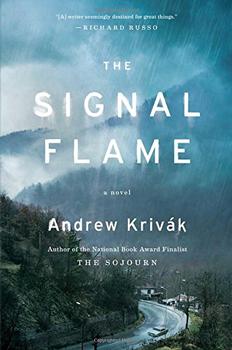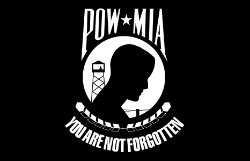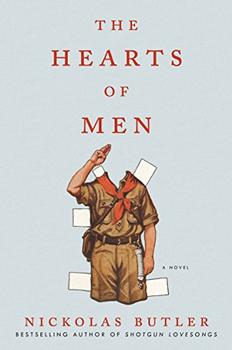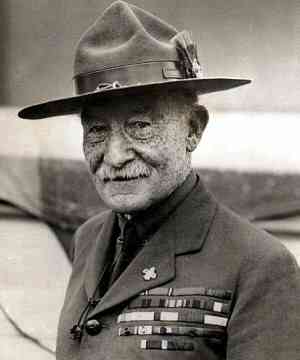  Books Available to Request Now
Members! This month's First Impressions and Book Club books are now available. If you're interested, please visit bookbrowse.com/arc to read about each book & request. Requests close 3pm ET this Sunday, March 19. 
|
  Editor's Choice  The Signal Flame by Andrew Krivak Hardcover (Jan 2017), 272 pages. Publisher: Scribner. BookBrowse Rating: 5/5, Critics' Consensus: 4.8/5 Buy at Amazon | B&N | Indie Review: The Signal Flame relates the legacy of multiple generations of the Konars, wealthy land-owners in rural Pennsylvania. It is the second chapter of a story begun with The Sojourn, a novel that was a finalist for the National Book Award. I haven't read the earlier book but still enjoyed this powerful sequel. The Signal Flame opens in Dardan, a small town nestled in Pennsylvania's Endless Mountains. The family patriarch, Jozef Vinich, an Austro-Hungarian soldier who immigrated to America after World War I, has just died. Bohimur (Bo) Konar, the last remaining son, and his mother Hannah, absorb Jozef's loss as they reel from yet another: Sam Konar, the youngest of the family, has been missing in action in Vietnam for over a year ..... Reading The Signal Flame is like being inside the eye of a hurricane. The story unfolds with relative calm, but death and devastation brim around the edges. It's only after reading the final page that one is aware of the emotional impact left in its wake. It's the kind of novel that gets its tenterhooks inside you and refuses to let go. Krivak evokes, with beautiful and sparse prose, the mid-century lives of blue-collar men and women as they grapple with love, grief, and forgiveness. I have never been to the Endless Mountains, but with Krivak's descriptions, I could almost feel as if I were there. Krivak describes Bo and his father going on "walks on which they had to stop and rest often, on a lush patch of crow's-foot, or the bald dome of Summit Rocks, where they could see the most of the two-thousand-acre stretch of the Vinich land." Save for one harrowing, breathtaking passage, not much of note "happens" in the book. Stylistically, the most interesting choice Krivak makes is eschewing the use of quotation marks. While this may be jarring, it's a mark of the author's talent that it's never unclear who is speaking. Rather than distract, the result makes the narrative feel like an old, important oral history. Instead of plot-focused twists or turns, we get a glimpse into the lives of three wounded, flawed people over the course of several years. The Signal Flame may burn slowly, but it burns hot. ... continuedFull access to our reviews & beyond the book articles are for members only. But there are always four free Editor's Choice reviews and beyond the book articles available.
|
  Beyond the Book: The MIA in Vietnam
Every time we review a book we also explore a related topic. Here is the "beyond the book" article for The Signal Flame:
In The Signal Flame, the Konar family grapples with the fact that Sam, the youngest son, is missing in action in Vietnam. War, by its very nature, means that not all who leave to fight will return home. In addition to those who die in service to their country, conflicts yield prisoners of war (POWs) and soldiers missing in action (MIA) who remain unaccounted for after the hostilities end. In most cases, the fate of these missing men and women remains a mystery, leaving grieving families without the closure of knowing what happened to their loved ones.  After the Vietnam War, 2,646 American servicemen were reported missing. Since that time, 1,028 have been identified and repatriated. It is the task of the Defense POW/MIA Accounting Agency (DPAA) to conduct ongoing investigations into the whereabouts of the other 1,618. However, searching for the last known whereabouts and remains of over 1,600 people across four countries (Vietnam, Laos, Cambodia and China) who went missing decades ago is no easy task. Sometimes, servicemen have been found alive. But more often than not, these painstaking investigations involve searching for human remains in places that are at best, guesses of where someone might have been killed in action. ... continued
|
  Editor's Choice  The Hearts of Men by Nickolas Butler Hardcover (Mar 2017), 400 pages. Publisher: Ecco. BookBrowse Rating: 5/5, Critics' Consensus: 5/5 Buy at Amazon | B&N | Indie
Review: Set mostly in the woodlands of north Wisconsin, Nikolas Butler spins a familial saga that explores the making of men and the meaning of manhood in his affecting novel The Hearts of Men. The 1962 summer that young Nelson Doughty spends at Camp Chippewa will form his life. Nelson intends to work toward his Eagle rank, but there's only a little to be done to reach that goal. Worse, Nelson's inept at sports, and he's more introvert than companionable. His one friend is Wilbur Whiteside, but, to make Nelson further outcast, Wilbur's the adult who runs the camp. Sensing Nelson's discomfort, Wilbur persuades him to play reveille each morning, a task Wilbur believes will give him discipline and a certain measure of respect. In fact, the duty may work to make Nelson's "desire for perfection" something useful rather than an obsession. That summer is the opening segment of the novel, which includes backstory references and family life anecdotes that deepen the story. In the next segment decades later, Nelson's the camp director, and has grown to have an edge of melancholy, and perhaps even a longing for the road not taken. Despite Nelson's best efforts, the nature of scouts and scouting have both changed with the times, and so the camp has changed as well. Wilbur's era was near Victorian with sex, drugs, and alcohol unmentionable. Nelson's era is more complex. ... This is a nuanced exploration into the hearts of men. And the north country of Wisconsin, pristine and wild, even though it's sparsely described, allows for a sense of colorful realism to radiate from the page. Dialogue flows realistically, and the internal conflict accurately reflects what we bring upon ourselves through our innate characteristics or through our choices. Thematically centered on the masculine, The Hearts of Men will appeal across genders. ... continued Full access to our reviews & beyond the book articles are for members only. But there are always four free Editor's Choice reviews and beyond the book articles available.
|
  Beyond the Book: The Boy Scouts of America
Every time we review a book we also explore a related topic. Here is the "beyond the book" article for The Hearts of Men:
 The Boy Scouts of America (BSA) plays a significant role in The Hearts of Men. Coincidentally, the youth organization is in the news as it adapts to current social mores. The New York Times reported on January 31, 2017: "Reversing its stance of more than a century, the Boy Scouts of America said on Monday that the group would begin accepting members based on the gender listed on their application, paving the way for transgender boys to join the organization."  Social structures have evolved since the British Lieutenant-General, Robert Baden-Powell, founded the Scouts in England in 1910. Baden-Powell was a military hero, known for his 1899 successful defense of Mafeking during the Boer War. According to BSA's history of cub scouting, he'd been an outdoorsman from his youth, and early in his military career while stationed in India "he discovered that his men did not know basic first aid or the elementary means of survival in the outdoors. Baden-Powell realized he needed to teach his men many frontier skills, so he wrote a small handbook called Aids to Scouting, which emphasized resourcefulness, adaptability, and the qualities of leadership that frontier conditions demanded." As much as Baden-Powell's concept appears almost paramilitary, the organization was not intended to be a direct pipeline to enlistment in the military. Its ideal is to "build a better boy," to paraphrase its official definition. That means training in personal fitness, matters of citizenship, and to institute values and character, which in turn is "a key to building a more conscientious, responsible, and productive society." ... continued
|
  Wordplay Solve our fiendish Wordplay puzzle, and be entered to win the book of your choice!
This week's Wordplay Solve this clue: "P, H T" Enter now The answer to last Week's Wordplay: K Your F C
"Keep your fingers crossed"
There are a number of theories for the origins of this expression but the one that historians seem to give most credit to is that the crossing of fingers started in the early days of Christianity when the religion was banned and followers were forced to develop secret signs to communicate with each other. One such sign is thought to have been the crossing of fingers by two people on meeting, who would identify themselves to each other by forming an L shape with their thumb and forefinger and then touching their thumbs together and crossing their index fingers to form a fish symbol (the ichthys, Greek for fish, being the ancient symbol of Christianity).
As for when crossing fingers for good luck became a one-person affair, there seems to be some modicum of consensus that this tradition started during the Hundred Years' War period in Europe (14th-15th centuries) when soldiers were happy to get all the luck they could, and crossing fingers with another person in the middle of battle wasn't practical.
If that is the case, then two important gesture possibly have their roots in this fractious period: The crossing of fingers and the V-sign, the British equivalent to the American middle-finger, made by forming the index and middle finger into a V with the back of the hand facing toward the person you wish to offend.
Although there is no primary evidence to prove it, legend has it that the V-sign originates with the English longbowmen during the Hundred Years War. This gruesome series of conflicts fought over more than a century to decide who was the rightful heir to the French throne led to many significant military innovations (in essence the two sides started the conflict with knights in armor and ended it shooting guns). One such innovation was the longbow, which was the main weapon of the English armies from the 14th century until the introduction of firearms. An effective method for the French to permanently put an archer out of commission was to cut off the index and middle fingers used to pull the bowstring. This led to the practice of English archers taunting the enemy by raising their bow fingers in what is sometimes referred to as the "two-fingered salute".
|
 About BookBrowse
Get to know BookBrowse through our 4-part introductory series:
|
Your guide toexceptional books
BookBrowse seeks out and recommends the best in contemporary fiction and nonfiction—books that not only engage and entertain but also deepen our understanding of ourselves and the world around us.
|